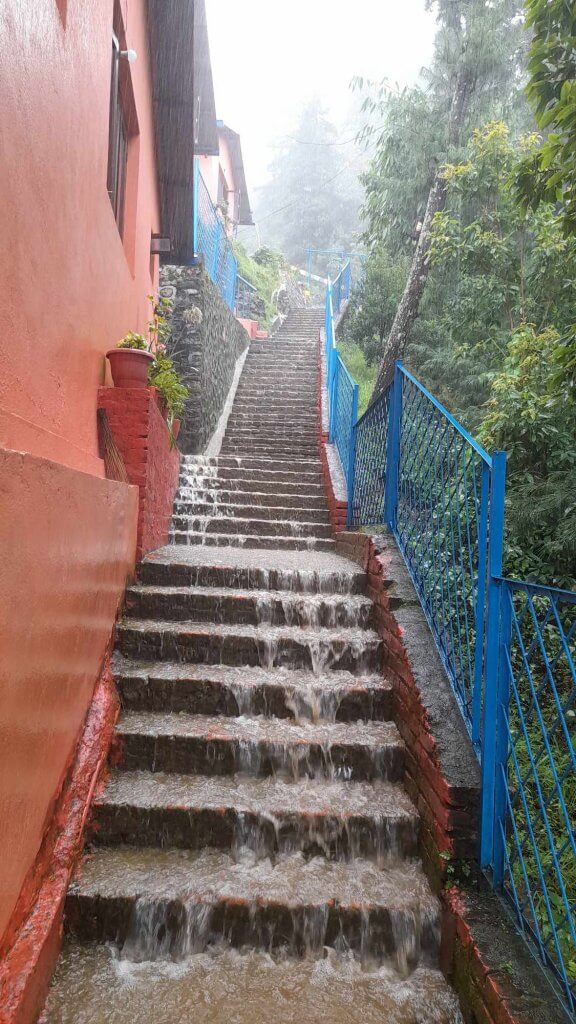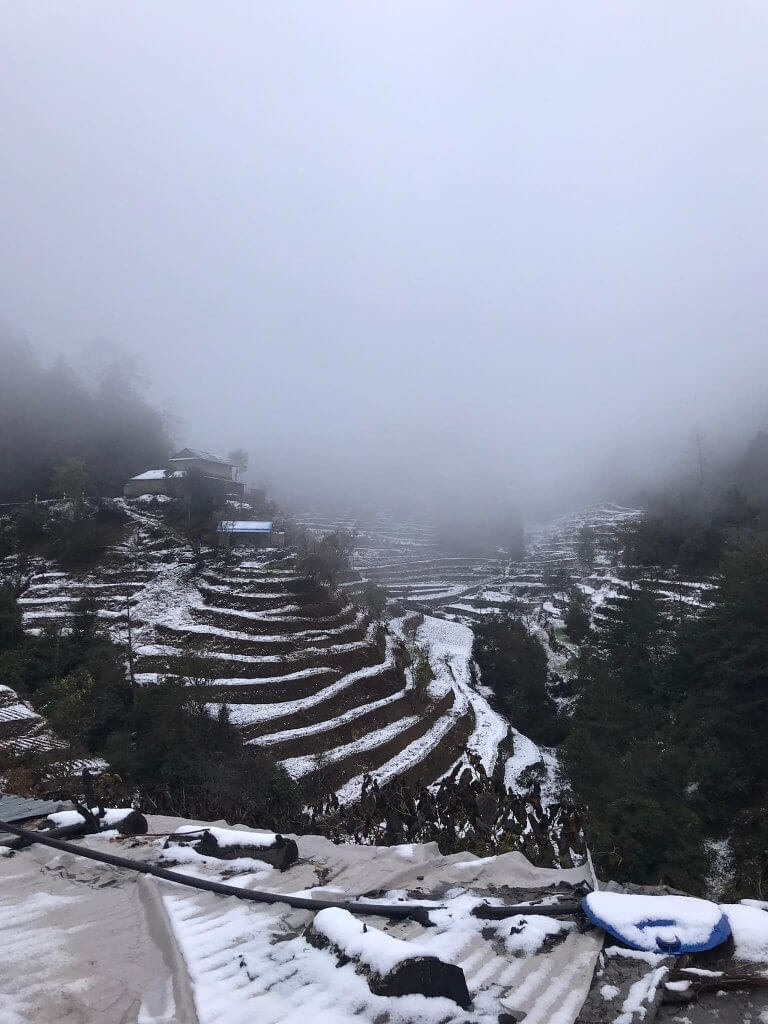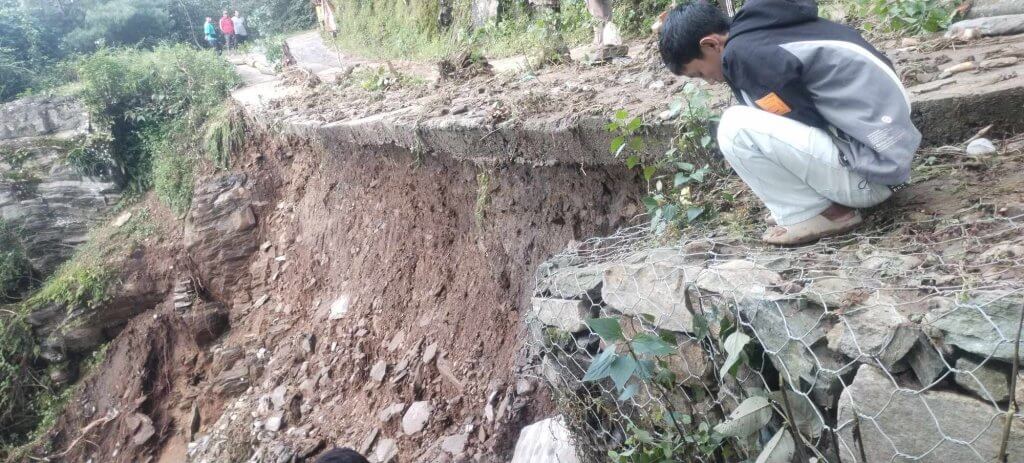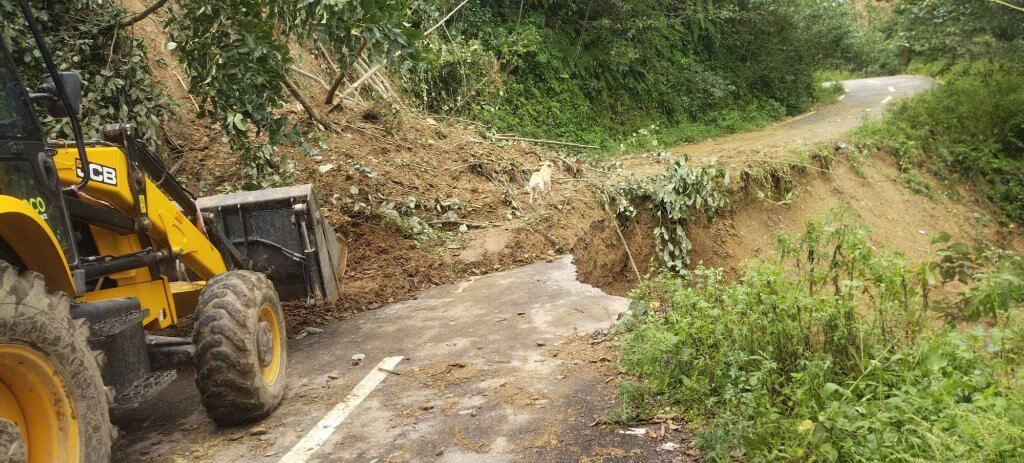The community hamlet of Malagiri is situated on a lush wooded mountainside and valley in the foothills of the Himalayas. The steeply terraced land allows local people to survive by growing crops and selling any surplus, owning a few goats and maybe a buffalo. Some of the young men also get work in Arabic countries and send some of their earnings home to help their families. Because of the local poverty and lack of education the community could be especially vulnerable to human trafficking with false promises of work in cities and other countries.
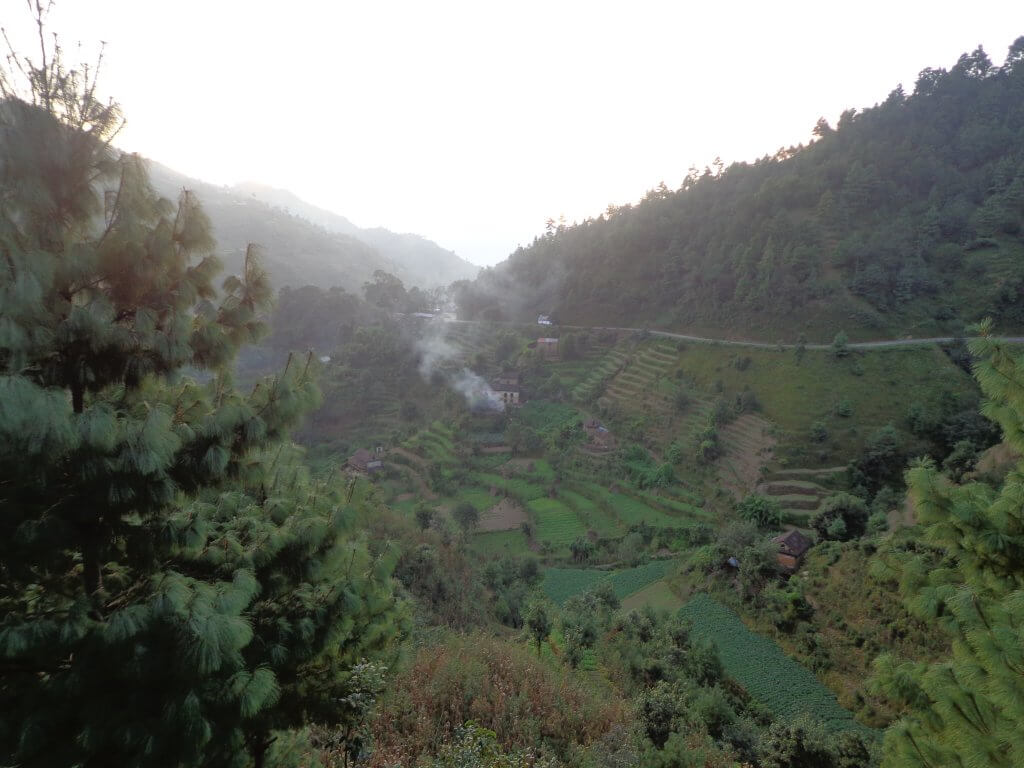
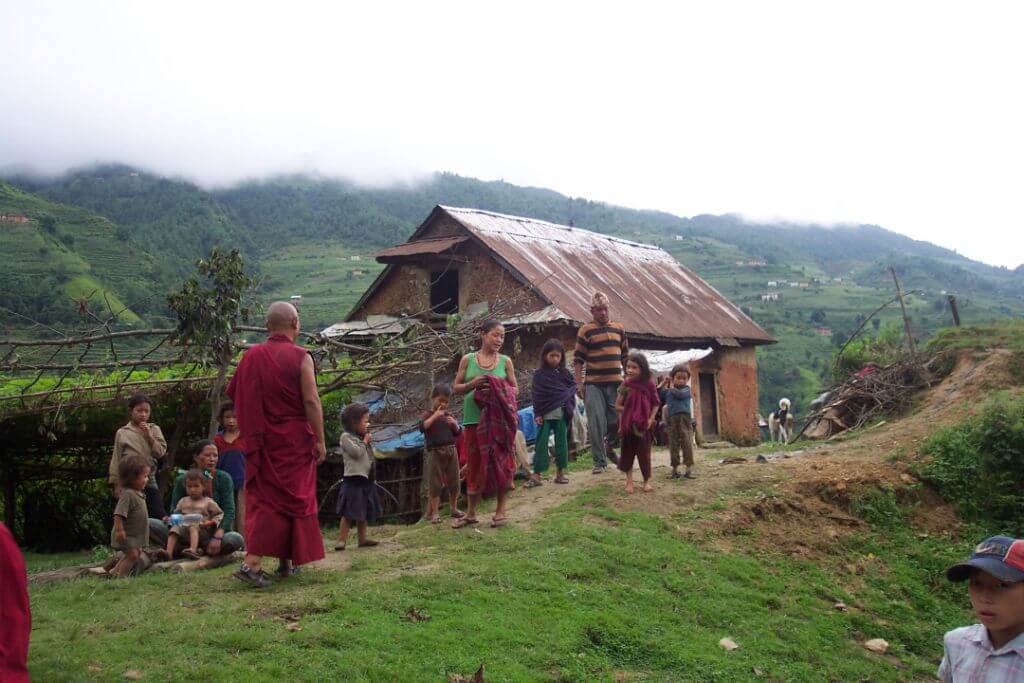
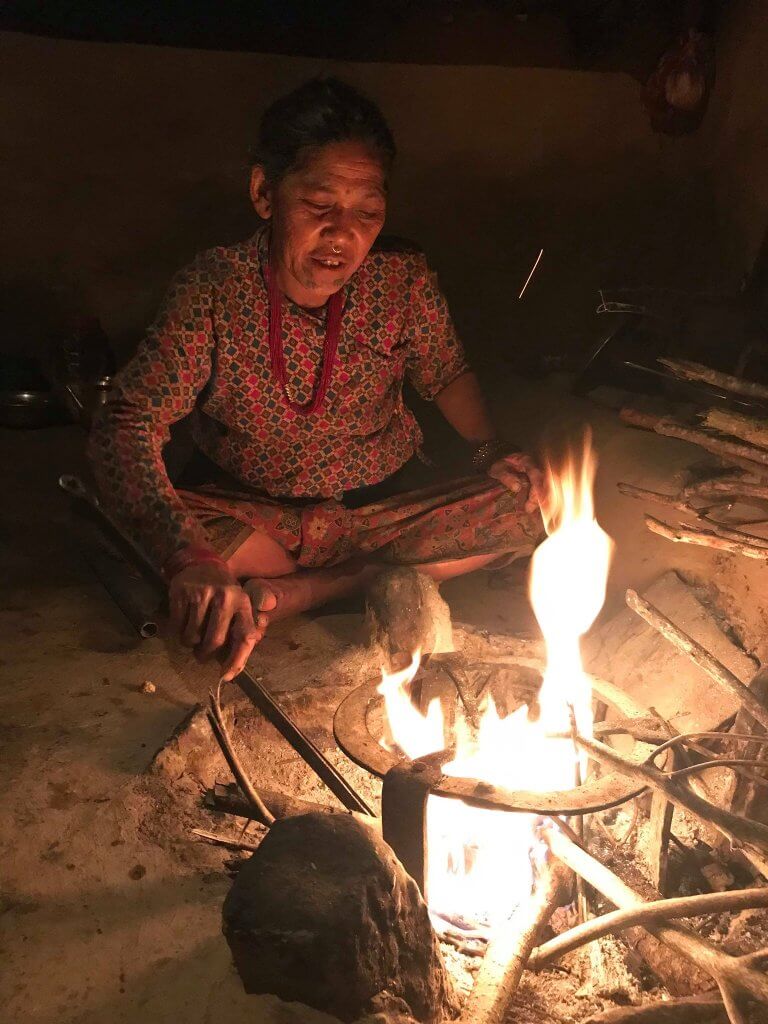
Malagiri 2007. School founders with the help of a Buddhist monk who spoke the local language conversed with the extended family living at this farmhouse near the road. Homes were very basic, cooking was done by burning a few sticks of wood on the bare earth floor with no chimney.
Life is hard in Malagiri with difficult challenges regularly appearing. During the earth quake of 2015 and the months of aftershocks many homes in Malagiri were so dangerously damaged they needed demolishing and rebuilding. Electricity is supplied to most homes in the community which has truly changed daily life for families, making housework and study in the evenings easier. See ‘House 1’ which was built after the 2015 earthquake according to government regulations and a design by a government engineer.
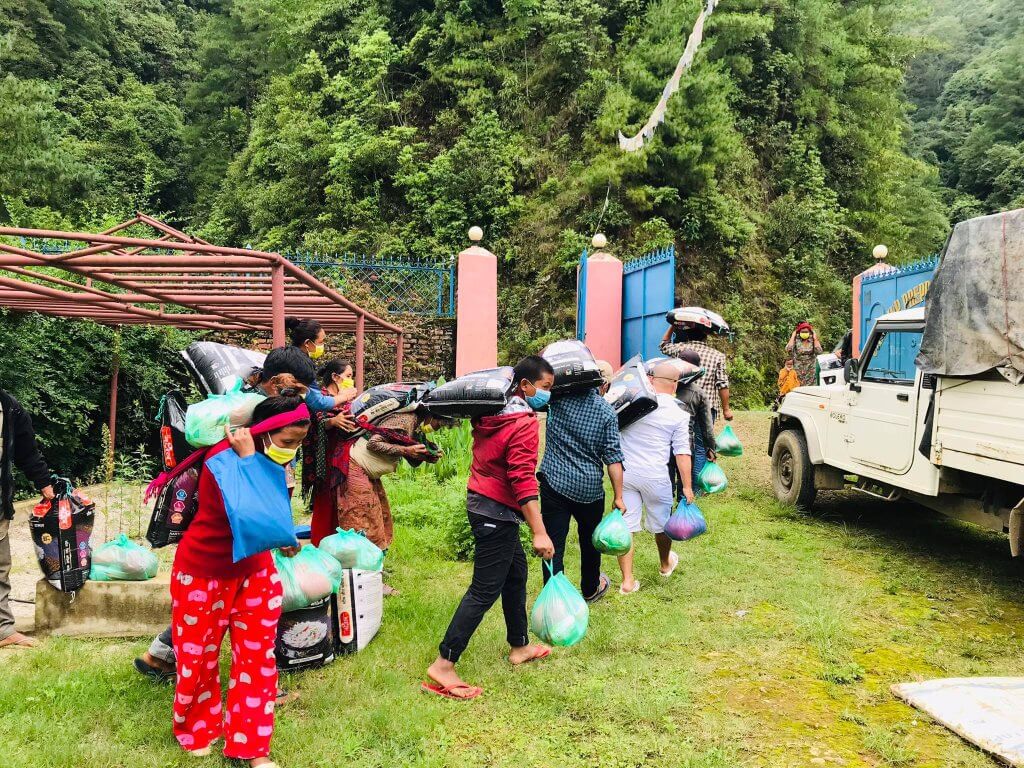
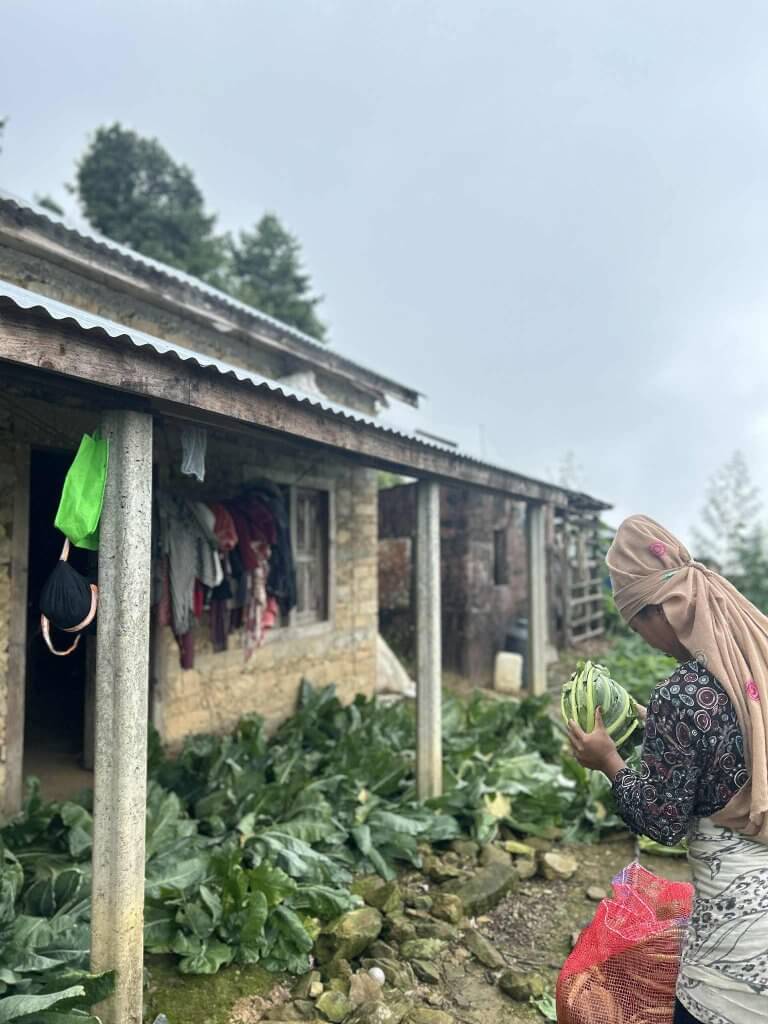
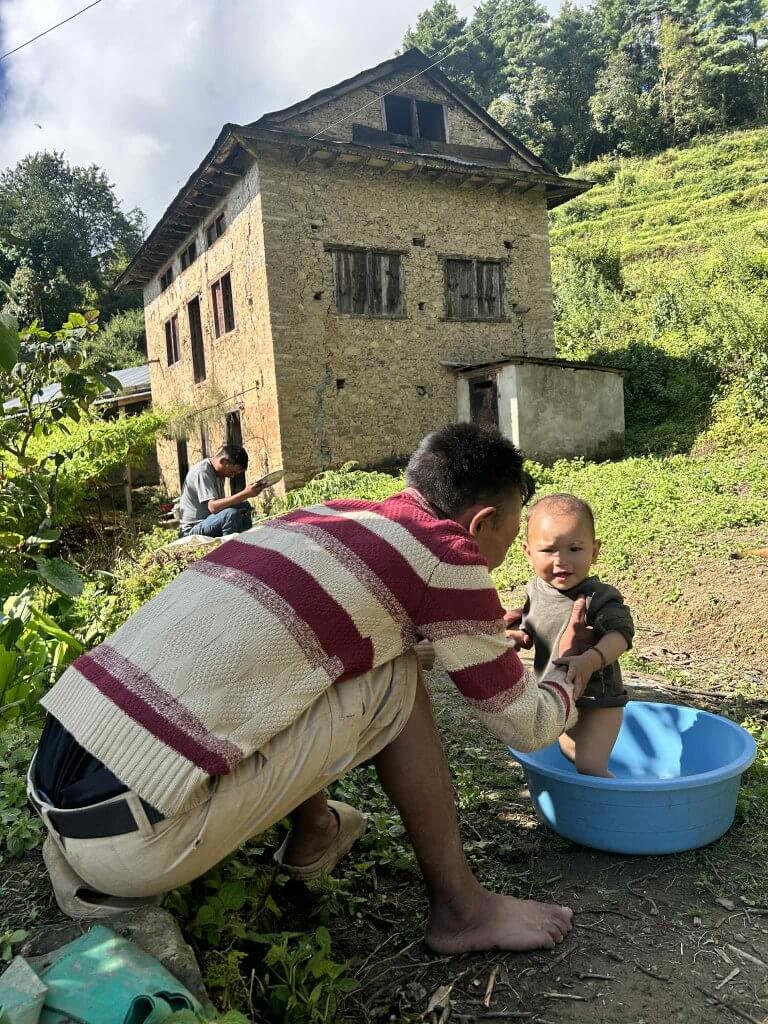
As travel had been forbidden and trade was not possible during the Covid pandemic in 2021, the school governors (JCO) arranged for essential supplies of rice, oil, soap and other items to be delivered to the school for local children and their families.
The harvest of September 2025 is a good one in Malagiri with farmers growing cabbages, cauliflower, radishes and coriander for sale. Now everyone hopes that they will receive a good price for the lovely fresh vegetables.
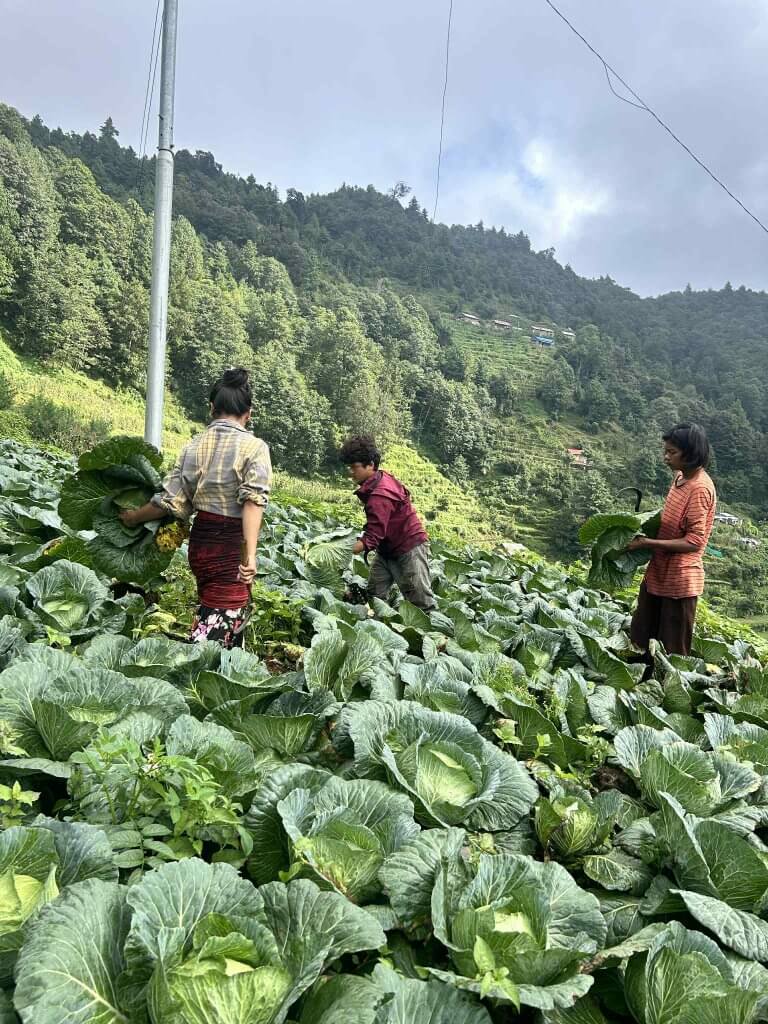
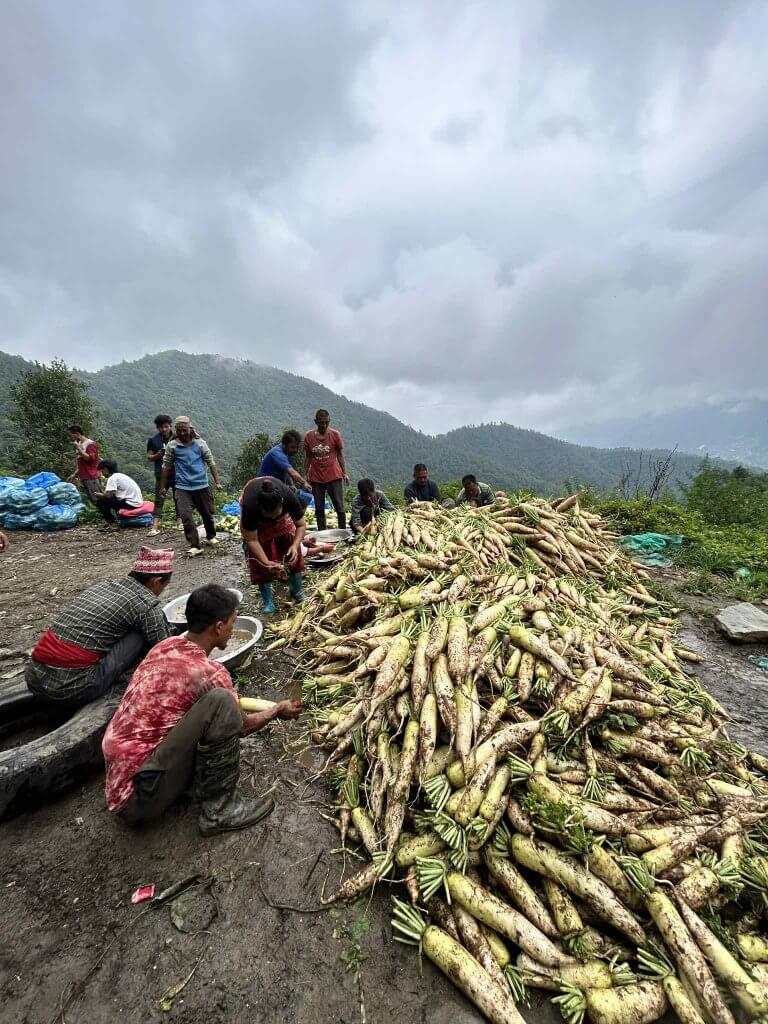
In 2024 the villagers had some good news: thanks to funding raised by Trinity most families received a cooking stove with a chimney. Now the homes are less smoky with more fuel efficient cooking and some families have fashioned a stove surround to raise the height and make sweeping easier.
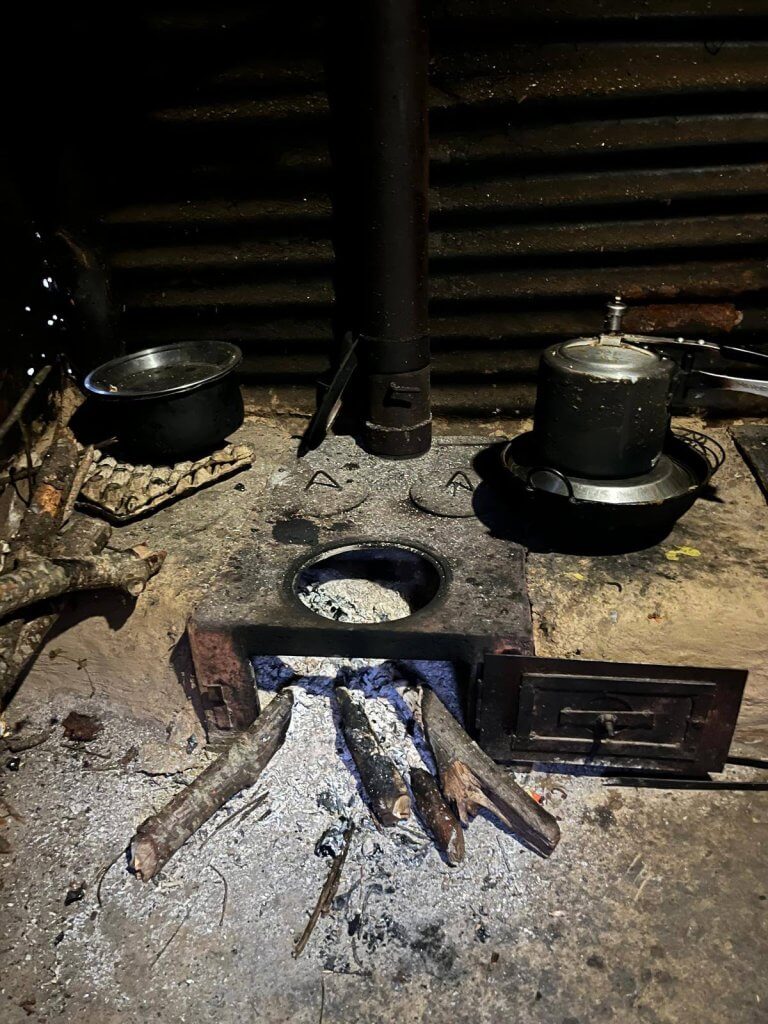
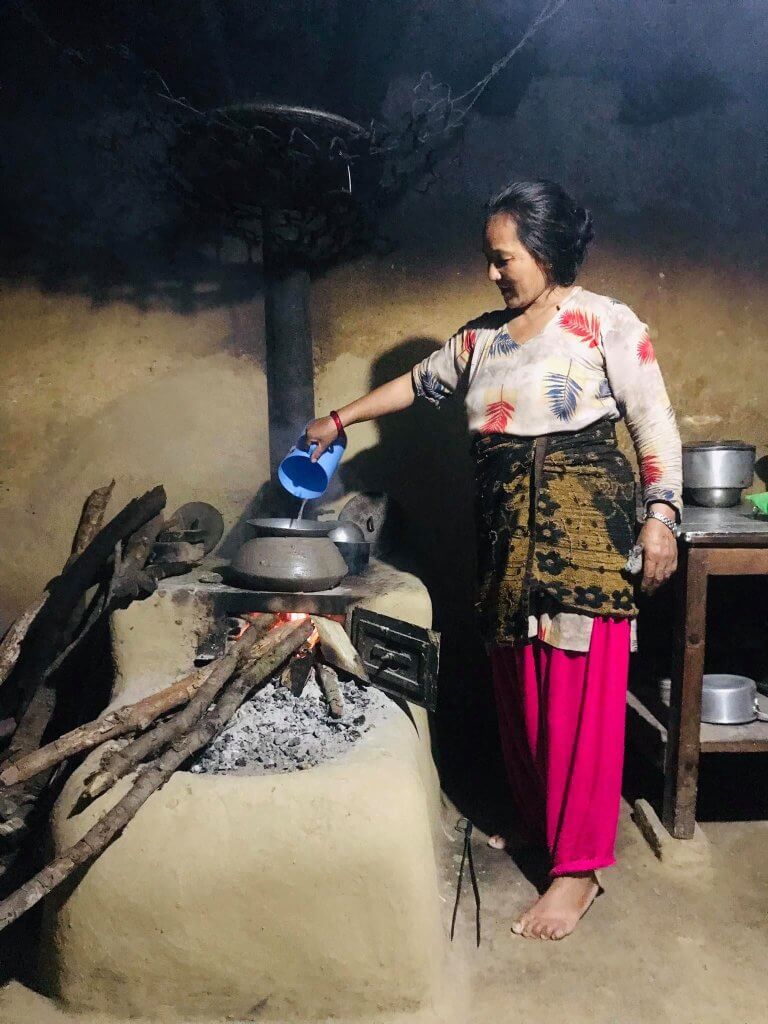
Malagiri can be cold and damp and there is no heating in the houses for comfort or to dry washing. Water is usually accessed via a hose outside the building.
Animals are housed in the home, divided from the family by a barrier wall. Sometimes children take the goats to forage on the hills and buffalos are often fastened to a post beside the home.
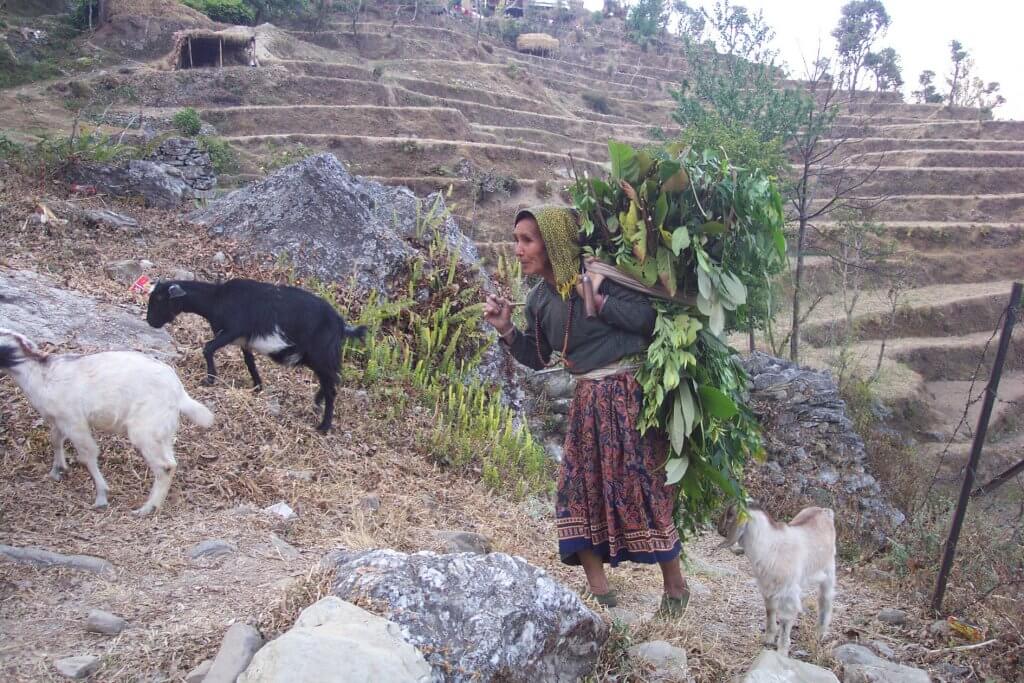
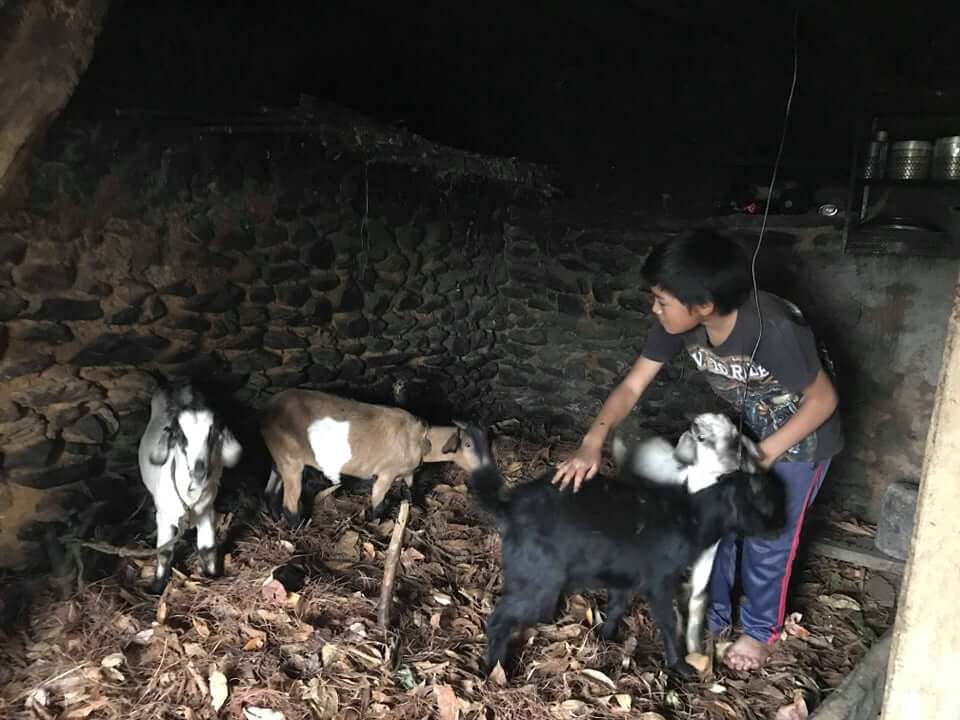
Weather can be extreme in Malagiri, the heavy monsoon rains often causing landslides and washing away sections of road. In September 2024 we received this message from Head teacher Gautam,
“I wanted to inform you that while the school premises remain unaffected, due to recent landslides and floods, the power supply has been disrupted, which has made it difficult to stay in contact. Additionally, the roads are currently being repaired, and there is a safety risk for children commuting to school.
For these reasons, the school will remain closed for three days to ensure the safety of the students. We will keep you updated on any further developments”
